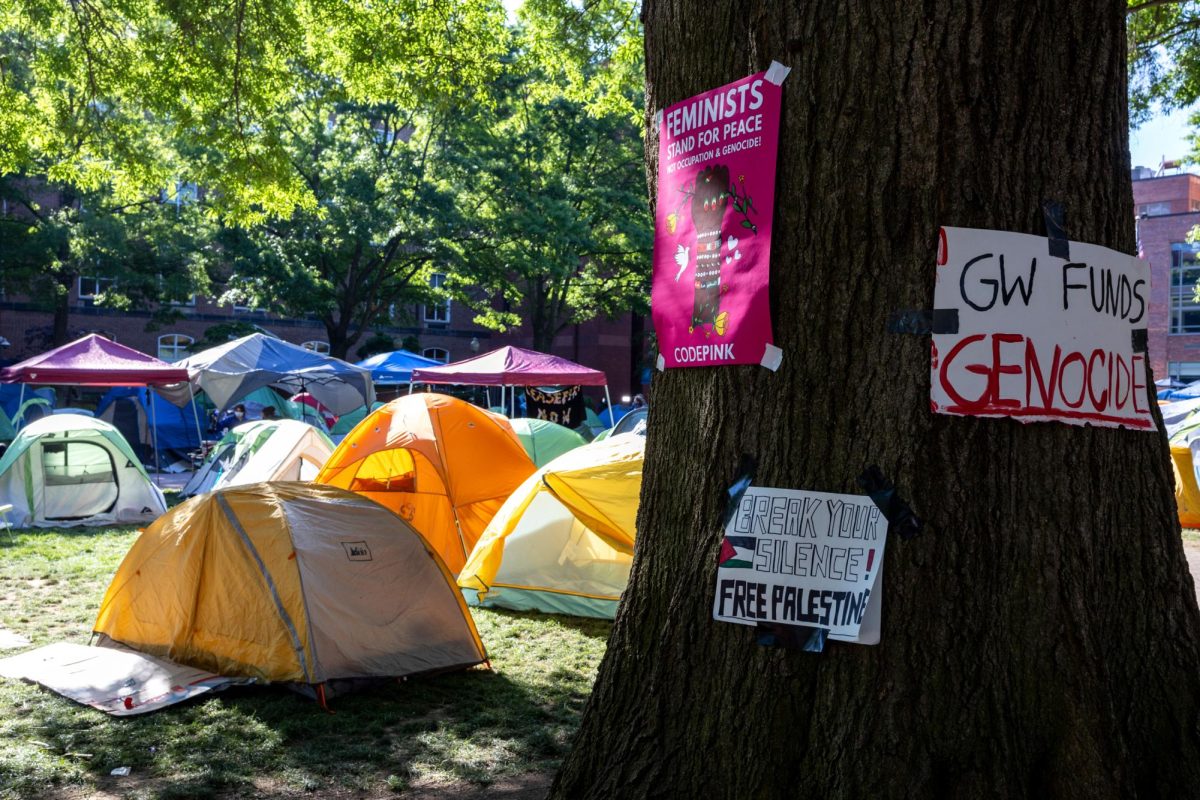The Neighbors Project, a GW community outreach program, will not receive funding from Americorps next year, but will recruit students this month to coordinate the group’s 13 D.C. sites.
Americorps only provides funds for two three-year cycles, which GW’s group has already completed, Neighbor’s Project Coordinator Stacy Blumenthal said. The volunteer group will still operate fully next year with support from GW and grant money, she said. Americorps, which provides funding for volunteer activities, is the centerpiece of former President Bill Clinton’s 1993 community service initiative.
Blumenthal said the organization, which did not receive Americorps funding this year for the first time since it began, will still receive GW support and grants from companies such as Fanny Mae. Blumenthal said she might apply for partial funding through the new D.C. commission of Americorps next year.
More than 600 GW students a year volunteer with the Neighbors Project, which began nine years ago. The Neighbors Project collected applications for next year’s coordinators and will hold interviews next week.
When operating under Americorps supervision, members were required to complete 900 hours of service in a year. Neighbors Project members now complete 600 service hours a year. Blumenthal said without the Americorps funding, the group has more freedom, allowing them to participate in faith-based programs and raise funds independently.
The Neighbors Project focuses on four areas of service: education, community development, heath and senior services. Students volunteer at 13 sites within the Shaw neighborhood of Northwest D.C. Each of the 13 sites has a corps member who works as a liaison between site workers and student volunteers.
“Neighbors is an experience that everyday reminds you of just how damned lucky you are, no matter what background you have,” sophomore said Kate Mereand.
Mereand heads a reading and math-tutoring program for third and fourth graders at Scott-Montgomery Elementary School. The program is run through For Love of Children, a non-profit agency located in Shaw.
“To be a part of change creates optimism in your life, and reminds you that the job is never done,” Mereand said. “Neighbors is a metaphor for every job, every career I have after this. It will change your life.”
New members will be selected April 9.
Most volunteer hours are spent working at a student’s site, interacting with the volunteers and people at the site, Blumenthal said.
Neighbors Project corps members are required to spend at least one and a half hours a week holding office hours at GW’s Office of Community Service, and they receive three hours of training every week, Blumenthal said.
The Neighbors Project received 18 applications for 13 open positions this year. Four of the applications are from current members who wanted to continue for another year, Blumenthal said.
Students said their work with the Neighbors Project has changed their lives.
“It has been a great experience,” said sophomore Mikey Akin, Neighbors Project coordinator for Emmaus Services for the Aging. “It doesn’t matter what field you are in, whether it be human services or if you are interested in law and politics, like me. All too often people making the decisions don’t see how what they are doing will affect people. This gave me a chance to work face to face with people and see how things really were.”
Senior Dan Sweet, coordinator of the Violence Prevention/Service Learning Program at Seaton Elementary School in the Shaw neighborhood, said his participation in the Neighbors Project redirected his academic goals at GW.
“I cannot begin to describe what an incredible experience this year has been for me,” Sweet said. “The best way to show how much Seaton has meant to me is how it changed the course of my career. I came to college sure I wanted to get into federal law enforcement and now I want to be a teacher.”
Applicants in last year’s group interview ranked 15 issues in order of importance to them, including hunger and health care while being observed by current corps members, Office of Community Service staff members and site supervisors, Mereand said.
Mereand said her experience with the Neighbor’s Project made an intimidating interview process worth it.
“I was shocked, literally dropped my jaw, when I was called and accepted after having been compared to such an amazing group of individuals,” Mereand said. “I haven’t looked back since.”







